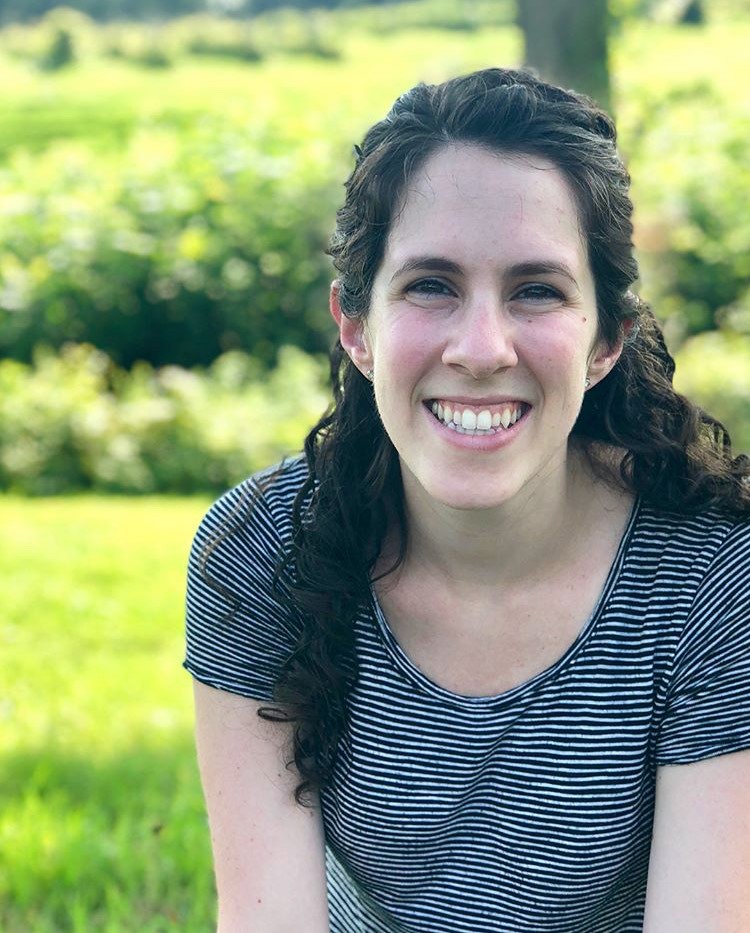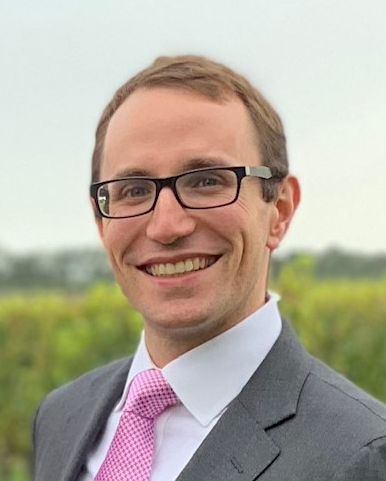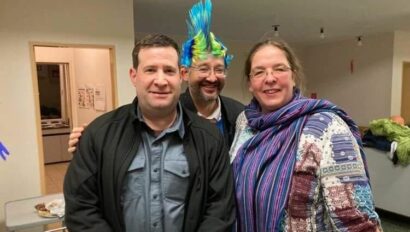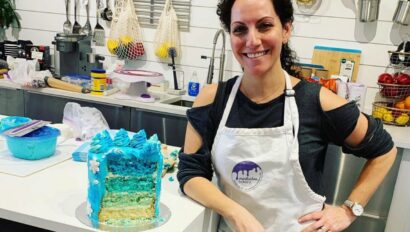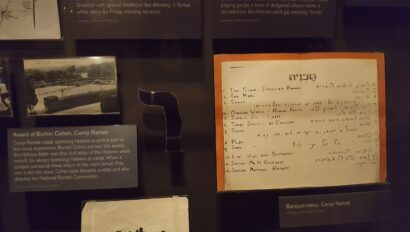Camp Ramah ruined Friday night services for Lilli Flink (Nivonim 2006).
Once she had discovered the passionate singing, commitment to egalitarianism, and devoted group of peers that defined Shabbat at Ramah, she could settle for nothing less.
“I fell in love with Shabbat davening at camp,” Lilli says, “It is where I realized that passionate tefilot are an incredible thing; and Friday night at Ramah is what we had in mind when we envisioned an ideal minyan of our own.”
When Lilli moved to Philadelphia a few years ago for medical school, she struggled to find a spiritual community that evoked the same passion and song that she grew to love at camp. Along with her friend Gabi Wachs, alumna of Ramah Poconos, Lilli began to wonder if others were seeking the same passionate and egalitarian prayer space.
In April 2016, Lilli and Gabi began by inviting ten friends over to their apartment and curating their ideal Shabbat experience: an evening of singing, davening, a d’var Torah, and a large communal meal. They continued to invite more friends each week.
Soon, they found, many others in Philadelphia shared their vision. “By August, there were 55 people showing up to our 2-bedroom apartment and we were bursting,” Lilli said.
The Spruce Street Minyan was born. They started to fundraise, developed a logo, created a Facebook group, and emailed out a sign-up sheet for attendance and responsibilities. “I would call community venues and say, ‘We have no money and we are looking for a space to pray Friday night,’ Lilli remembered.
With donations and support from local rabbis and others who saw the importance of this project, the minyan continued to grow. “It took on a life of its own,” Lilli said, “and the community made it happen.”
Driven by a clear vision of the community she wanted to create, Lilli attributes both her vision and her leadership initiative to her experience at Camp Ramah in Wisconsin. “I learned strong leadership skills at camp, and I especially learned about the importance of teamwork as a staff member,” Lilli said.
The third of four Flink children at camp, it was assumed that Lilli would go to Ramah. “My mom told me that my two older sisters went to camp crying and left camp crying. I got on the bus and never looked back – I didn’t cry and my first summer I didn’t even write home.”
From her first summer as a camper, Lilli fell in love with camp. “I was the kind of kid who got into everything. Rikud, omanut, shirah, kikar dancing; I loved my classes, I loved leading davening, and I loved Shabbat.”
Yet it was on staff that Lilli truly found her niche. “I have incredible memories of working with Nava Kantor and Daniel Olson on Tikvah staff,” she said, “laughing together and creating these innovative and dynamic programs for our campers. I remember being amazed by what we could do together, how we could accomplish things we could never have done alone.” The power of the collective is a piece of Ramah that Lilli carries with her, and a force that drives the Spruce Street Minyan as well.
Among the community members keeping the minyan thriving is Ben Philipson (also Nivonim 2006). As one of the leaders of the Spruce Street Minyan, Ben is launching the organization’s first major fundraising campaign and is eager to strategize for the future. He also traces his love of Shabbat singing back to Camp Ramah. “The first time I was allowed to go to seudah shlishit singing on Saturday night I was blown away,” Ben remembers. “The next week, we were pulled away from singing because our peulat erev was starting. I remember leaving with my counselors and then peeling away from the group and sneaking back to seudah shlishit because it was so phenomenal. My most rebellious moment was sneaking out of peulat erev to sing Shabbos songs.”
Ben first started at Camp Ramah in 2001 as a Halutzimer, and the first thing he said when he returned home at the end of the summer was, “when can I go back?” The eidah plays and sports games were highlights for Ben (who was the catcher during several legendary eidah softball games). “I remember these thematic moments of coming together as a team and accomplishing things we could not do individually,” Ben said. “The experience of building a show or a softball team together is very powerful, and camp was about finding and being part of this group of incredible people, and doing amazing things together.” After his camper years ended, Ben returned as Rosh Radio, Rosh Boating, and as a member of the marp (infirmary) staff. His ultimate goal is to return as camp doctor.
Both Ben and Lilli are entering the field of medicine, and often reflect on the ways that their Ramah experiences impacted their career trajectories. Now in residency at Jefferson Health, working in family medicine, Lilli traces her success in medical school and in residency back to lessons learned at Ramah. “I think back to my experiences on Tikvah staff all the time now; it truly set a groundwork for me professionally,” she said. “we spent a lot of time focusing on how to make our program, and camp as a whole, accessible for everyone involved, especially making sure everyone is aware of the schedule and the instructions. Working with a patient or in a team, I always try to meet people on their level. Setting expectations for patients and adapting to constant changes are two aspects of my work that I learned to navigate at Ramah.”
Ben, who is enrolled in the MD-PhD program at the University of Pennsylvania, echoed much of Lilli’s sentiment. “My decision to pursue a career in pediatrics was in large part motivated by my time at camp,” Ben said. “Ramah provides opportunities for children to try things and find themselves, and camp provides positive energy, enormous momentum, and a high bar that children consistently exceed. Camp helped me realize how much I value working with young people, and understand that pediatrics is what I want to spend my life doing.”
Though starting off as a “Ramah minyan,” the Spruce Street Minyan now includes members from across the Jewish spectrum, attracting people who identify as modern Orthodox as well as those whose first davening experience was at the Spruce Street Minyan. Now more than three years after the first meeting, the minyan is a registered non-profit organization with a small board of directors, and a recent Friday night service drew nearly 100 people. Many of the regulars are no longer from the peer group that started the minyan, yet they share the same essence and purpose of the founders. To Lilli, this is a sign of true sustainability. “After being gone for a few months, I walked into kabbalat Shabbat and didn’t recognize most of the people in the room; 15-20 people raised their hands and said it was their first time,” she said. “Though the population of regulars has evolved, there is a need for a progressive, egalitarian, and traditional Jewish space, and we created a framework for this space to exist.”
Ben sees the Spruce Street Minyan as a pipeline to a lifelong Ramah community.
“Our minyan is a return to camp for people for who are no longer counselors and not yet sending children to camp,” Ben said. “People come up to me and say – this is like Ramah outside of camp. The minyan has become an opportunity for adults to bring Ramah back into their life. Every Friday night feels like we are back at camp again.”
